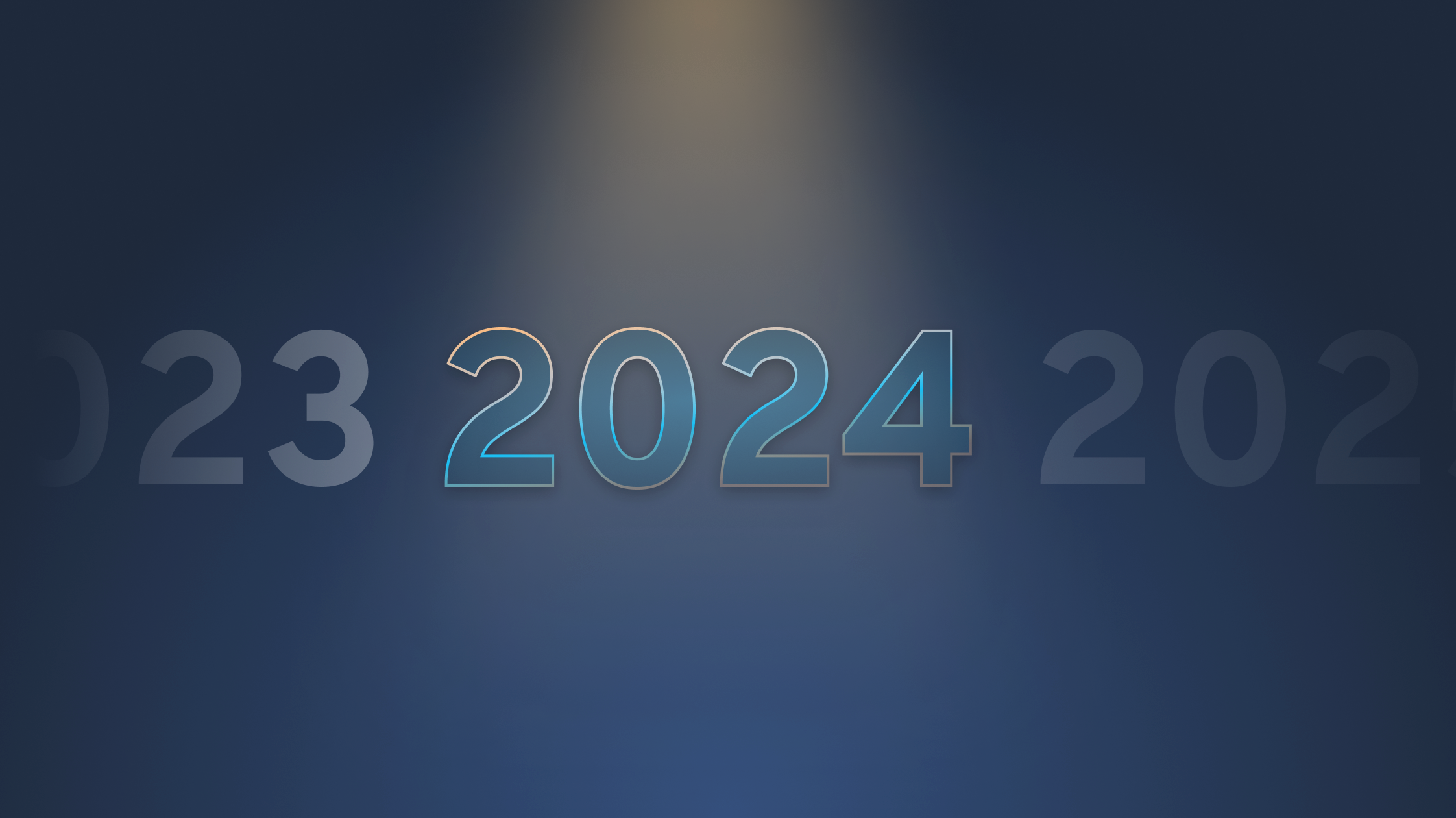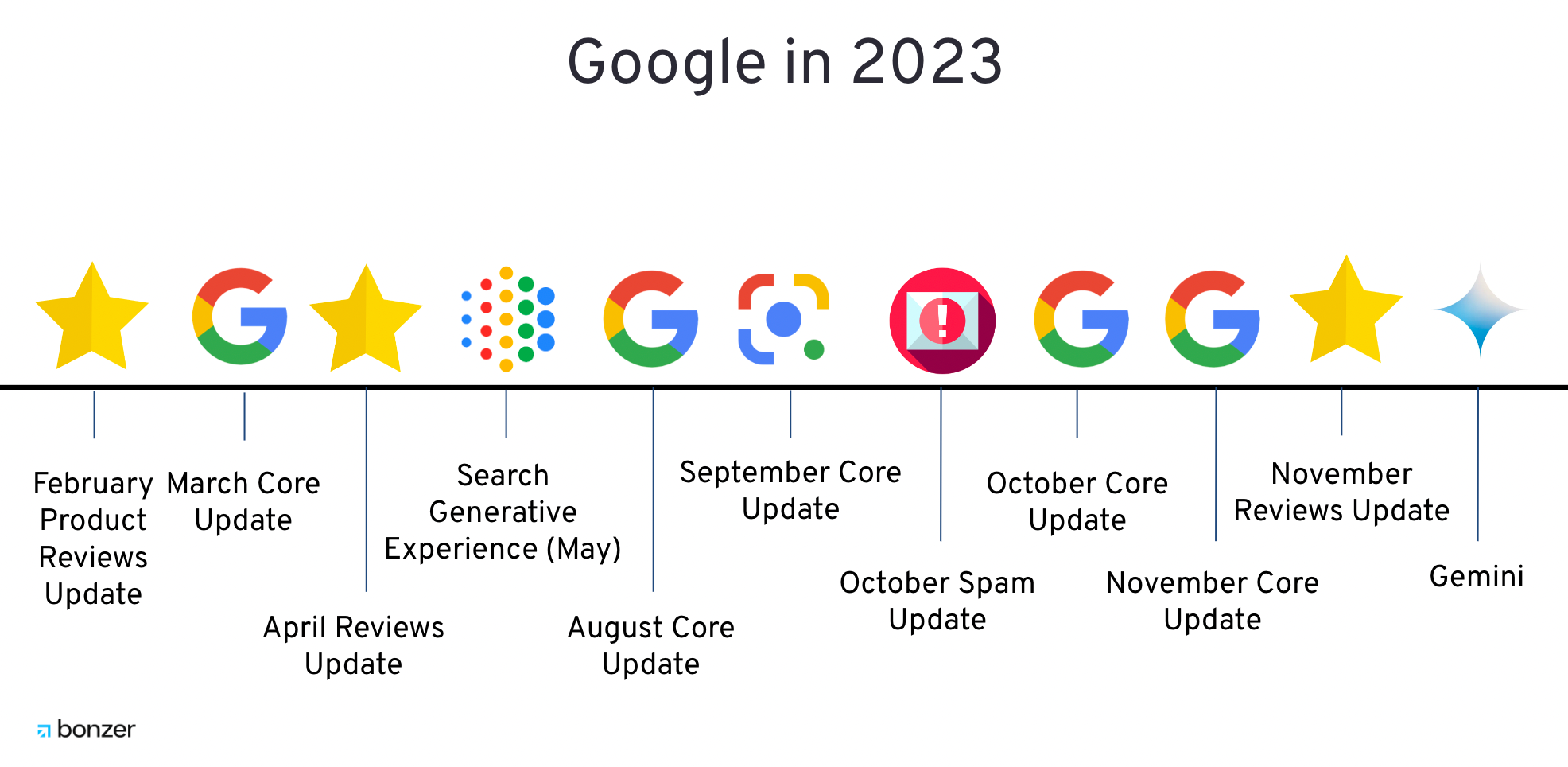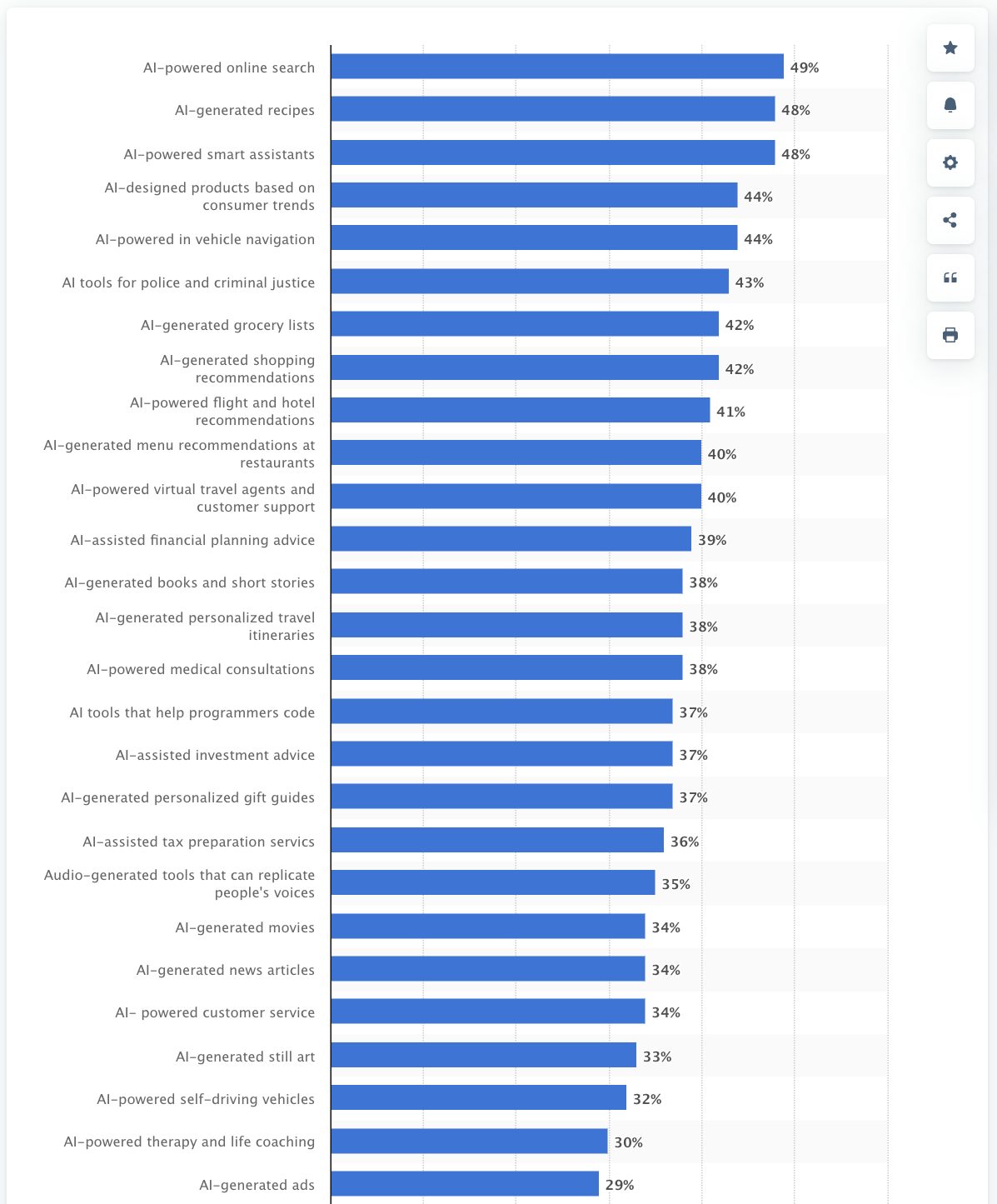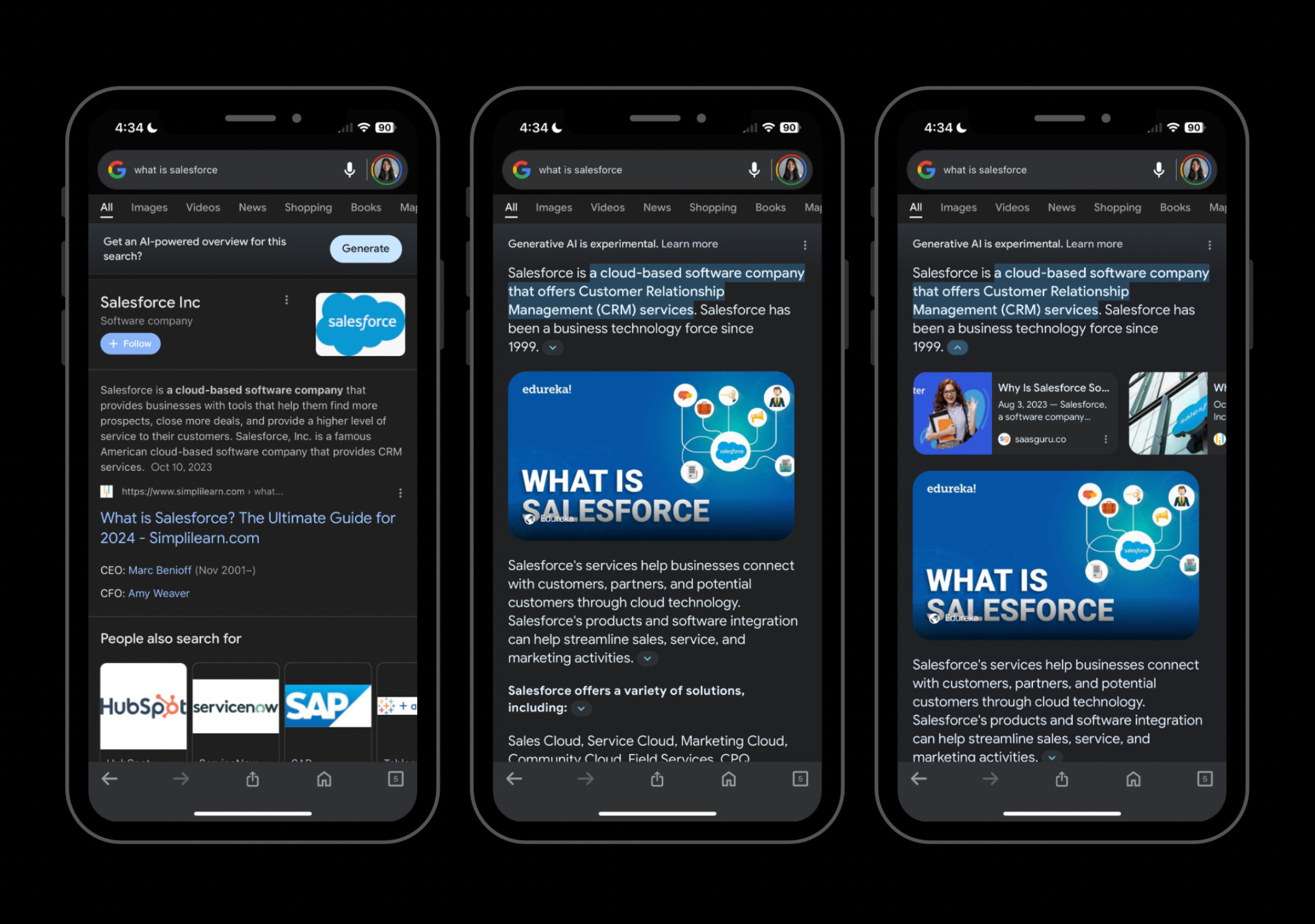/
Research
/
0 min read
Search Engine Recap of 2023 - and What to Expect This Year
2023 was an eventful year on many fronts - and search was certainly no exception. With AI leading the way, SEO has undergone a transformation over the past year, and in 2024, it's expected to create big winners and even bigger losers.

In our first recap of the year, we take stock of the past year in SEO. It was a year filled with countless updates and news, which naturally required an overview.
Google, as recently as December 2023, had a final sprint with several updates and the launch of their latest product, Gemini.
So, let's start by looking at the headlines for 2023.
Biggest Headlines for 2023
2023 will go down in history as a year with a record number of updates and product launches in the field of SEO.
Looking at Google alone, they provided us with the following updates in 2023:

However, it wasn't just the search engine market leader, Google, that updated itself. Many other search engines came into play.
The common denominator? AI.
Microsoft and OpenAI were quick to open the year with new agendas with Bing and ChatGPT, which over 2023 set the stage for entirely new ways of searching.
This was followed closely by Google, culminating in May with their introduction of SGE = Search Generative Experience.
SGE began its rollout in 2023 and will expand to more countries in 2024. The term covers the new overview of Google's search results, where the interface and results will be driven by AI. This means that SEO strategies - and funnel marketing in general - should be revisited by many companies.
However, those who have kept up with the search engine's development over the past year have clearly seen that Google has strengthened its algorithm for this very purpose, which can be decoded from 'The Helpful Content System' and especially the umbrella term “E-E-A-T”.
E-E-A-T in Everything You Do
If we briefly step away from AI, I believe in many ways we can say that 2023 cemented the concept of “E-E-A-T” in all of our SEO minds.
E-E-A-T is the concept that denotes all good SEO and is simultaneously the rules you should follow in 2024 (and the years ahead) if you want to be among the top results in your industry.
The concept stands for Experience, Expertise, Authoritativeness, and Trustworthiness, and is based on the idea that if a company wants to dominate its field through search and the internet in general, it must demonstrate experience, expertise, trustworthiness, and authority in everything it does.
This is something the algorithm on Google and other search engines have indirectly adapted to over the year, which is why those who have been the big winners have been those who have lived up to these guidelines by being ‘topical thought leaders’ in their industry.
This is based on consistently being active with an SEO strategy in the form of improved user experience (page experience), ongoing production and optimization of quality content in multiple formats, and achieving authority through relevant mentions from the surrounding world.
It can also be translated into technical SEO, content, and links. But E-E-A-T describes it in a more modern and holistic way, so it can be understood in every part of your overall funnel.
How AI Has Become an Integrated Part of Search
2023 integrated AI into SEO more than ever - and with the rollout of, among others, SGE, it will become even more evident this year. This brings various implications and thoughts for consideration, which I will go through in the following.
Consumers Want AI-Powered Search Results
According to a survey of 2,205 adults in the USA, the AI-powered product people are most interested in is search functionality.
The list of AI products also includes AI-powered assistants, shopping recommendations, and ads (December 2023).

Even over 25% of users trust AI-generated search results, recommendations, and ads.
So whether you're for or against the development, AI has made us as humans desire a more intelligent search engine. Because with the development of technology, we become pickier and expect results delivered better and faster. A development I think will be hard to stop once the wheels are rolling as they are now.
Changes in Google's AI Guidelines
Google updated its guidelines for AI content during 2023. Where previously there was opposition to AI-generated content, they have changed to the view that it's not about whether a robot or a human created the content - it's about the quality for the end-user "however it's produced".
The human touch, however, has indirectly become more crucial than ever - both for users and search engines.
In 2023, countless companies lost traffic and revenue as a result of overly frequent use of AI content. Not because it was AI - but because the content was thin, mediocre, and the human touch was lost in the artificial.
Content is not just content. If the quality isn't good and unique enough to beat competitors, we humans and search engines will overlook it.
A direct lesson from 2023 for many, therefore, is that AI cannot stand alone, but it can be a strong supplement.
As we have used ChatGPT and similar tools to generate more content than ever, Google has been forced to raise the standards to increase quality. This has provided more guidelines for those who want to own the top rankings; including, for example, showing more experience in advisory content.
SEO is Not Necessarily a Google Game Alone
2023 was marked by AI, largely due to OpenAI, which entered the scene with ChatGPT at the end of 2022. Something that in 2023, in collaboration with Microsoft, challenged Google and the way we search for information.
AI has been around for a long time, but never has it developed so exponentially and broadly in just one year - and never has it changed our habits in terms of search behavior, demand, and expectations so quickly. Compared to previous years, this has also given Bing a boost in market share vs. Google (despite Google still leading by lengths).
This development forced Google to speed up its product backlog and come forward with SGE and Bard (their chatbot equivalent to ChatGPT).
Likewise, other search engines have followed suit. Everything from DuckDuckGo to social media tools like SnapChat - and generally content tools - can generate everything for you in just a few seconds.
The takeaway here is therefore that in 2023 we became aware of a more user-defined way of searching, which is based on more conversation and answers that fit exactly what we expect to suit us. In other words (again), we have become pickier, and if Google doesn't live up to this, alternatives will become more relevant.
However, one should still distinguish between a search engine and a creative helper - a think tank if you will. But the fact remains that in SEO, we must keep our eyes open for more search engines that may become relevant in 2024.
Why Google Will Continue to Be the Market Leader in Search - For Now
The short answer is that Google still has what one might call a monopoly. Even though they are challenged, they hold the lead and have developed many of the same tools as Microsoft and OpenAI - possibly better, some would say. They also still have the absolute majority of search traffic worldwide.
And although OpenAI and Microsoft were ahead of Google in AI development at the start of 2023, Google has followed closely with the chat function, the search engine, and tools (and generally has a backlog that beats most in AI).
Many were skeptical about Google's shares compared to Bing, but this has not really changed - on the contrary, Google with SGE and Bard has only become stronger, which all history has also shown when challengers have come.
I believe Google will still dominate the year 2024, despite more players coming. For more players will come, and they are ready to take up the challenge with Google. Something that only reinforces the development and opportunities for the end-user and for us in marketing.
Build Content on Topics - Not Keywords
It might sound like something you've heard before. But when you want to achieve success with SEO, it no longer suffices to optimize for keywords alone. Often a keyword has several sub-intentions, which must be covered regardless of the type of content created.
Furthermore, competition has only increased as more companies have emerged, and the possibilities for content are endless. Therefore, it is important that you as a company show that you are the ones with the most knowledge and expertise in your field. Use this in your content strategy and publish continuously.
In addition, there needs to be a change in the classic search intentions. Where previously intentions could be divided into 4-5 types, including informative and transactional, we must understand today that intentions can be much more specific and with multiple layers. One search is not necessarily just one intent - and one intent is not necessarily just formulated in one search.
Don't Get Too Star-Struck by AI
With greater competition and demand for content, many have been tempted to use AI tools like ChatGPT to go far in a short time.
But what 2023 has shown is that many companies have done themselves a disservice by going from great to mediocre content, losing followers and placements in search. Something we have touched upon the consequences of before.
Greater Focus on LLMs and Human Interaction
Google DeepMind has generally increased its focus on LLMs (Large Language Models) throughout 2023, with the aim of raising the level of the search experience.
LLMs are used not only for better organization of information but also to offer a more 'conversational' and interactive model for users in search. This transformation strengthens the search engines' role beyond just information searching. It involves capabilities that now include synthesizing data, generating creative content, and idea generation based on past searches.
Therefore, adapt your strategy for more human interaction, as users will expect this. This involves creating content in multiple formats that better answer conversation-based searches, as well as functionalities and navigation that more easily guide users to the content.
The Continued Concern of 'No-Clicks'
The generative experience continues to bring concerns of no-clicks, as more searches will be answered by SGE already in the search results. Additionally, SGE's potential effect has led to lawsuits against Google.

However, I don't think we need to be so concerned again. For first and foremost, 'no-click' answers are often content that anyway answers something as banal as how long a meter is, for example. That's not the kind of traffic we actually want.
With SGE, Google is more inclined to work with nuances of the informative and share perspectives.
In addition, there will still be three possible search results that people can click on at the top. Elsewhere, Google has even removed snippets (like classic FAQs in several places), which therefore actually provides a greater incentive to click through.
SGE Becomes a Reality
Despite many tests and discussions back and forth about SGE, there is a growing demand for generative AI-driven search experiences.
Therefore, it's safe to assume that SGE will be part of Google's search results, much like featured snippets and other SERP features are today. This makes the top placements on search engines like Google only more crucial.
We can therefore expect bigger winners and even bigger losers in the future.
Takeaways and Recommendations
AI is here to stay, and it's about how we adapt to it in SEO.
You can choose to work with the tools or stay behind. However, you should not get too star-struck, as by total surrender, you lose yourself, your users, and your placements. It's therefore about following guidelines like E-E-A-T and all the other updates Google has come up with.
Furthermore, 2023 has shown that Google can indeed be challenged, and since we work with SEO and not 'GEO' (Google Engine Optimization), we must also be ready if other search engines - and behaviors - change.
Many companies fear the future of AI and here bots that just talk with bots - and that it's these that know our preferences and not ourselves. But there's nothing necessarily new in this, as it's how we already operate today. Just look at our beloved toy, the iPhone. We no longer communicate as humans as we once did - we have bots talking to bots.
Therefore, the historical development suggests that we already act in this way and that we adapt. Therefore, the game is about - as it always is with renewed tools - how we use them, who is best at managing them, and who seems most 'human' according to the updated rules of the game.
But data also shows that we can ultimately become too satiated with too much development. For as humans, we also seek the unique. I think this will be the buzzword in the coming years. Just look in the USA, where more young people are starting to buy dumb phones again. This indicates that it can also become too much, and that we need something more human that stands out.
Therefore, those who find the balance by using AI to optimize without copying reality are the ones who win. Those who win are those who strike something in people, who capture our attention and give reason for further demand. That's partly what we should be searching for through E-E-A-T.
The focus should be on drawing on experiences and combining them with facts. Opinions and perspectives need more focus, as these unique recommendations and knowledge are what we as humans seek from each other.
The stage is set: welcome to 2024.

CPO & Partner
Thomas is the CPO (Chief Product Officer) and Partner at Bonzer, which means his day-to-day focus lies in constantly analyzing Google's algorithm and developing SEO as a product. Thomas has worked with SEO for several years with a strong passion for sharing his knowledge on how businesses can best implement SEO into their operations. In addition to Bonzer, Thomas contributes his expertise to readers at publications like Search Engine Journal, DanDomain, and Detailfolk. He also teaches Digital Media Strategy at Copenhagen Business School and SEO at DMJX in Copenhagen. If you have any questions or requests regarding the SEO universe, feel free to contact him at [email protected].

Let us show you an SEO strategy that can take you to the next level
A brief meeting, where we review your position in the market and present the opportunities.
Let us show you an SEO strategy that can take you to the next level
A brief meeting, where we review your position in the market and present the opportunities.